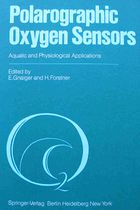Difference between revisions of "Lomholt 1983 POS"
From Bioblast
(Created page with "{{Publication |title=Lomholt JP, Johansen K (1983) The application of polarographic oxygen sensors for continuous assessment of gas exchange in aquatic animals. In: Polarographic...") |
|||
| (12 intermediate revisions by 6 users not shown) | |||
| Line 1: | Line 1: | ||
{{Publication | {{Publication | ||
|title=Lomholt JP, Johansen K (1983) The application of polarographic oxygen sensors for continuous assessment of gas exchange in aquatic animals. In: Polarographic Oxygen Sensors. Aquatic and Physiological Applications. Gnaiger E, Forstner H (eds), Springer, Berlin, Heidelberg, New York: 127-133. Springer 127-133. | |title=Lomholt JP, Johansen K (1983) The application of polarographic oxygen sensors for continuous assessment of gas exchange in aquatic animals. In: Polarographic Oxygen Sensors. Aquatic and Physiological Applications. Gnaiger E, Forstner H (eds), Springer, Berlin, Heidelberg, New York: 127-133. Springer 127-133. | ||
|info=[[File:Gnaiger-Forstner 1983 POS.jpg|left|55px|link=https://www.bioblast.at/index.php/Gnaiger_1983_Springer_POS|POS1983]] [[File:PDF.jpg|100px|link=http://wiki.oroboros.at/images/8/80/Lomholt_1983_POS.pdf |Bioblast pdf]] [https://link.springer.com/chapter/10.1007/978-3-642-81863-9_13 Springer link] | |||
|authors=Lomholt JP, Johansen K | |authors=Lomholt JP, Johansen K | ||
|year=1983 | |year=1983 | ||
|journal=Springer | |journal=Springer | ||
|abstract=[[File:Gnaiger&Forstner POS 1983.jpg|right|140px|link=Gnaiger 1983 Springer POS|Gnaiger 1983 Springer POS]] Most aquatic invertebrates, as well as fish, depend on active ventilation of water for irrigating respiratory surfaces. These may be specialized in the form of gills or ctenidia, or be unspecialized parts of the general body surface. Movement of water may occur by active muscular pumping or by ciliary action. Typically, the passage of water across respiratory surfaces occurs in discrete channels and most commonly unidirectionally. | |||
In: [[Gnaiger 1983 Springer POS |Gnaiger E, Forstner H, eds (1983) Polarographic Oxygen Sensors. Aquatic and Physiological Applications. Springer, Berlin, Heidelberg, New York:370 pp.]] | |||
}} | }} | ||
{{Labeling | {{Labeling | ||
|area=Respiration | |area=Respiration | ||
| | |organism=Fishes, Crustaceans | ||
|preparations=Intact | |preparations=Intact organism | ||
|topics=Oxygen kinetics | |||
|topics= | |||
|couplingstates=ROUTINE | |couplingstates=ROUTINE | ||
|additional=POS 1983 | |||
}} | }} | ||
Latest revision as of 14:20, 2 January 2021
| Lomholt JP, Johansen K (1983) The application of polarographic oxygen sensors for continuous assessment of gas exchange in aquatic animals. In: Polarographic Oxygen Sensors. Aquatic and Physiological Applications. Gnaiger E, Forstner H (eds), Springer, Berlin, Heidelberg, New York: 127-133. Springer 127-133. |
»
Lomholt JP, Johansen K (1983) Springer
Abstract:
Most aquatic invertebrates, as well as fish, depend on active ventilation of water for irrigating respiratory surfaces. These may be specialized in the form of gills or ctenidia, or be unspecialized parts of the general body surface. Movement of water may occur by active muscular pumping or by ciliary action. Typically, the passage of water across respiratory surfaces occurs in discrete channels and most commonly unidirectionally.
Labels: MiParea: Respiration
Organism: Fishes, Crustaceans
Preparation: Intact organism
Regulation: Oxygen kinetics Coupling state: ROUTINE
POS 1983


